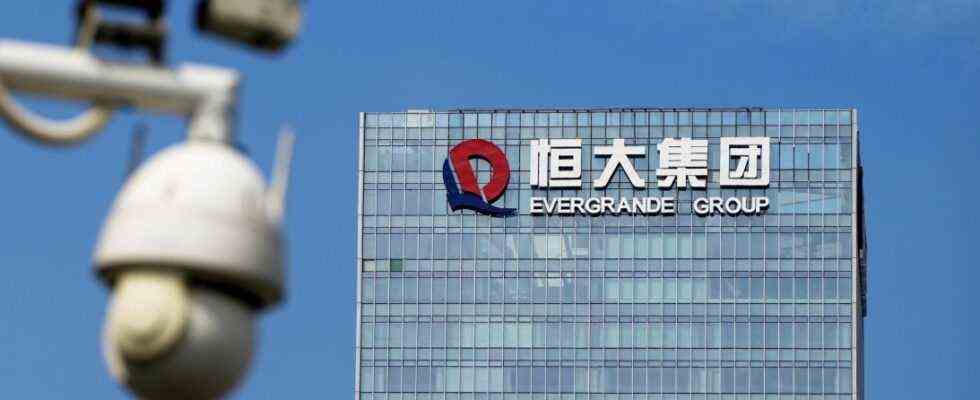Was that it? Is Evergrande, the Chinese real estate company that is supposed to depress $ 300 billion in debt, really broke? In any case, the rating agency Fitch downgraded the creditworthiness of Evergrande and its smaller competitor Kaisa on Thursday and issued an emphatic warning of a default. The question is, did Evergrande pay $ 82.5 million in interest on Monday or not? There have been reports that some investors have not yet received their money. If so, Evergrande would be legally insolvent and all other outstanding bonds would have to be written off by the banks and funds that subscribed to them. A loss of billions.
A rescue by the Chinese state is becoming increasingly unlikely for international investors. China’s central bank governor Yi Gang spoke up on Thursday. Evergrande’s risks are a “market operation” that is appropriately dealt with “in accordance with the principles of the market and the rule of law”. The central bank advocates a fair market environment. Companies and shareholders would have to deal appropriately with “their own debts” and protect the interests of creditors in accordance with legal requirements and market regulations.
The new status of Evergrande and Kaisa is now “Restricted Default” at Fitch, which means something like “restricted credit default”. Kaisa failed to repay a $ 400 million senior bond as of Tuesday’s reporting date. At Evergrande, Fitch criticizes the lack of interest payments that would originally have been due in early November. The grace period of 30 days expired on Monday. Evergrande did not respond to questions about the commitments: “We therefore assume that they have not been paid,” says the Fitch Report.
A week ago, Evergrande itself warned of possible payment difficulties: The group could not guarantee that it would have sufficient funds to meet its obligations. The authorities in Guangdong Province, where Evergrande is based, then sent a working group to the company.
The group is currently working on 1,000 new construction projects
For the Chinese government, the main concern is to avoid the effects of a possible Evergrande bankruptcy. A slump in the housing market should be prevented at all costs. Because: in 1995 real estate investments accounted for around 15 percent of the gross domestic product. In 2019 it was 13 percent, and the Chinese economy has doubled several times since the mid-1990s, wrote the American economist Kenneth Rogoff in a recent study. “In an international comparison, the extent of the Chinese real estate boom is certainly unprecedented.”
If you also take into account the activities of construction companies, steel and cement works and the associated service companies, Rogoff estimates that the real estate sector is responsible for 29 percent of Chinese economic output – significantly more than in many other countries. A collapse of the real estate market, triggered by panic selling after an Evergrande bankruptcy, could have devastating effects: Around 60 percent of Chinese assets are invested in concrete, in the United States it is just a quarter.
So what’s next? A break-up of the group is conceivable. In China itself, authorities could then manage and complete individual residential complexes to prevent Chinese property owners from having to write off their assets. The group is currently working on a good 1,000 new construction projects in the country. And Evergrande has requested prepayment for around 1.4 million apartments, most of which do not yet exist.

